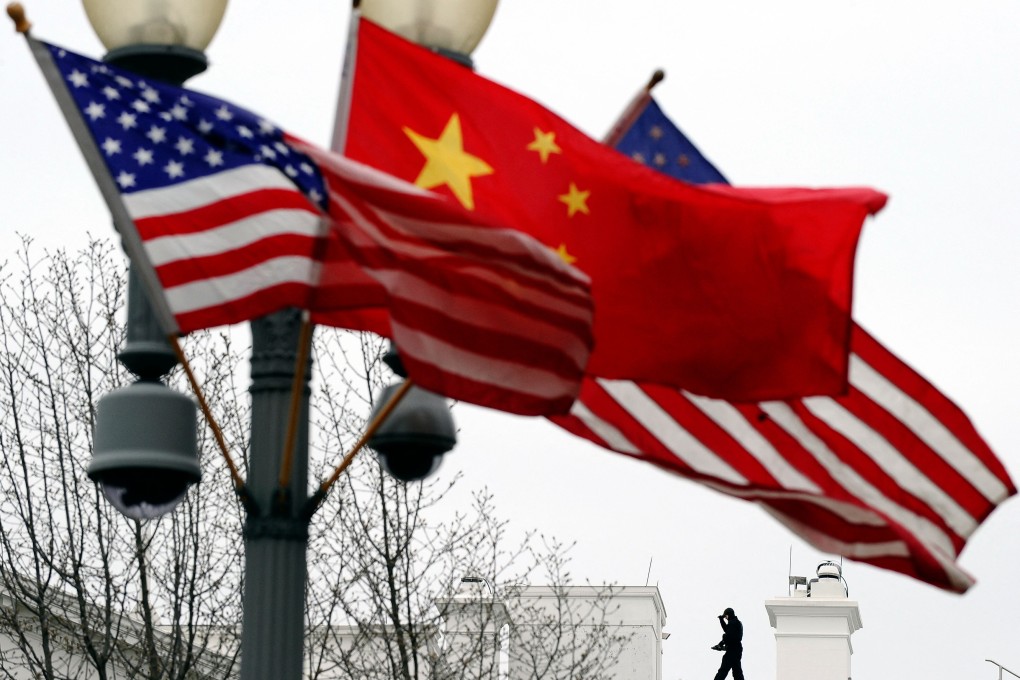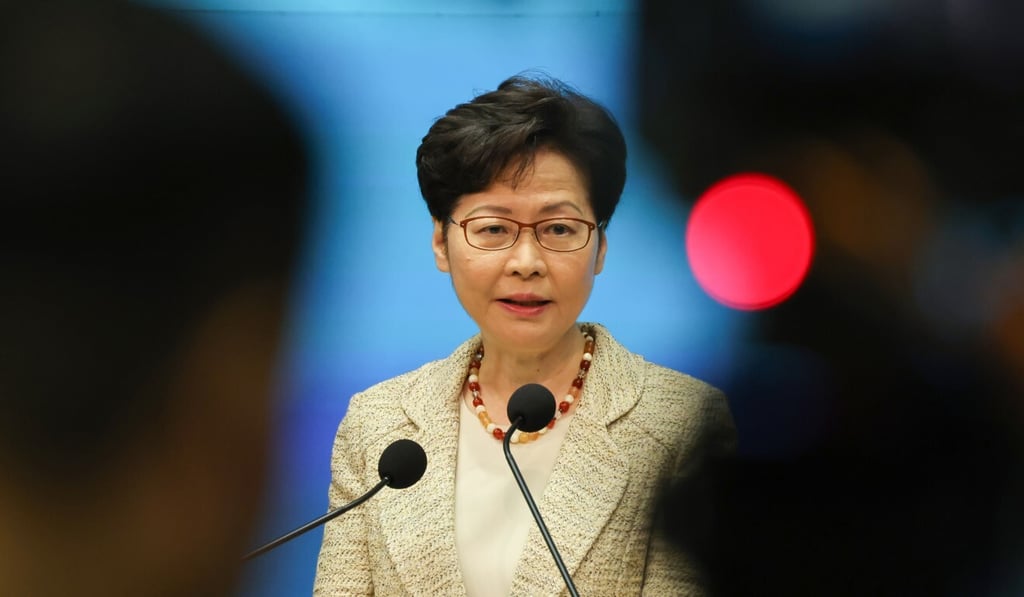Advertisement
Hong Kong legislature should apply anti-sanctions law in city, depriving ‘foreign forces’ of talking point, Carrie Lam says
- Unlike the Beijing-imposed national security law, Legco would be tasked with adapting the new legislation to the city’s specific circumstances under chief executive’s plan
- Direct implementation would open the door to foreign governments and media outlets ‘hyping up the issue’ to weaken Hong Kong’s financial centre status, she says
Reading Time:2 minutes
Why you can trust SCMP
10

Mainland China’s anti-sanctions law should be applied to Hong Kong via local legislation to prevent the issue from being “hyped up” by foreign forces looking to weaken the city’s status as a financial centre, Chief Executive Carrie Lam Cheng Yuet-ngor has said.
The National People’s Congress (NPC) Standing Committee, the country’s top legislative body, is expected to meet next week to add the new national legislation to the Hong Kong and Macau Basic Laws, the cities’ mini-constitutions.
But the anti-sanctions legislation was unlikely to be directly implemented – nor immediately enacted in Hong Kong – as was the case with the national security law, Lam explained on Tuesday.
Advertisement
The new law, a response to a spate of United States sanctions imposed on mainland and Hong Kong officials accused of eroding the city’s freedoms, allows Beijing to take countermeasures against foreign individuals and entities involved in discriminatory measures that “violate international laws and basic norms”.

Advertisement
Under the Basic Law’s Article 18, national laws do not apply in Hong Kong except for those listed in Annex III. Once included, they can then be applied locally either by promulgation or through the city’s Legislative Council.
Advertisement
Select Voice
Select Speed
1.00x